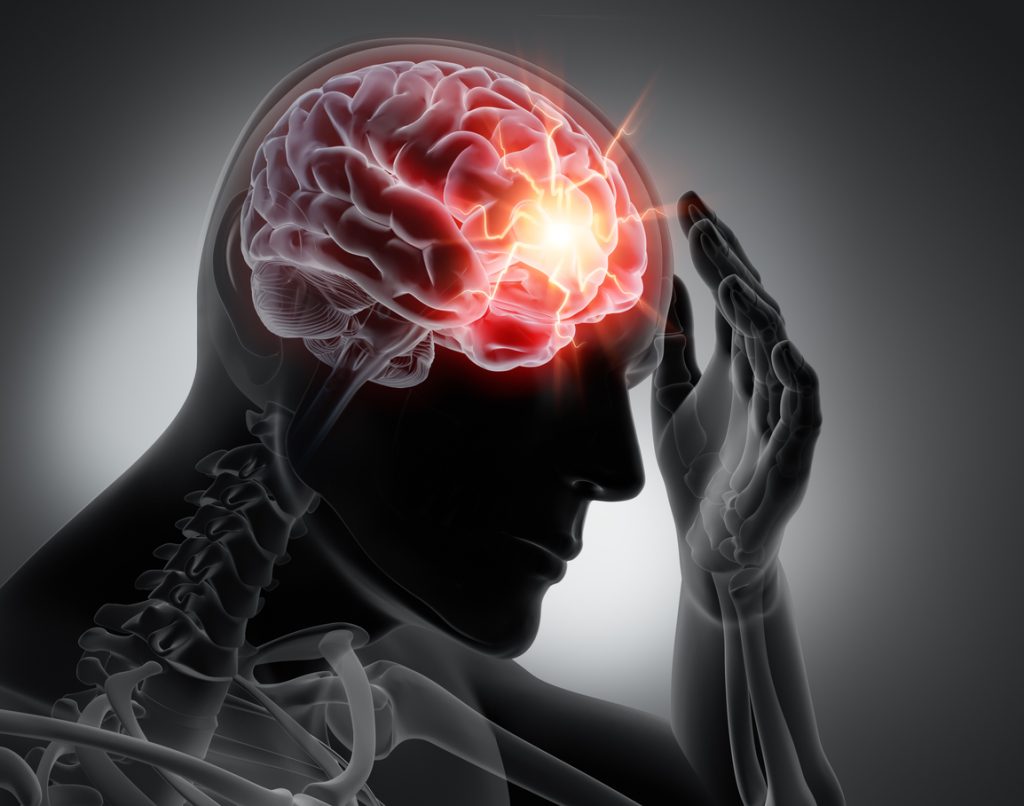Almost any type of accident can cause a traumatic brain injury (TBI). You don’t even need to hit your head on a hard object. Some TBIs are the result of a sudden force causing your head to move rapidly back and forth—for example, the force resulting from a vehicle accident.
Did you know that an estimated 1.5 million brain injuries occur annually? And that out of these, some of them are considered traumatic. So, how can a TBI impact your life? The answer often depends on which part of the brain is injured. You may experience physical, cognitive, or emotional issues or a combination of the three.
The Two Halves of Your Brain
Your brain is divided into two sides, the left and right. Each side is responsible for different functions, and a TBI can affect one or both halves of the brain. A quick note; the left side of your brain controls movement on the right side of your body and vice-versa.
The two sides of your brain are also responsible for controlling various functions. Speech, reading, writing, memory, and cognitive thinking are the responsibility of the left side. The right side of the brain controls intuitive and nonverbal functions like the ability to recognize visual patterns. The right side also controls your ability to express and understand various emotions. An injury to either the left or right side of your brain can have a significant impact on your life.
Potential Impact of a Traumatic Brain Injury
When you think of a traumatic brain injury, its potential impact on your physical abilities often comes to mind.
However, most individuals suffering from a TGI regain the use of their hands, arms, and legs within a year or so after the injury. You can usually return to work and even drive a car after suffering a TBI, but unfortunately, this doesn’t mean you’re back to your pre-injury state.
TBIs typically have a long-term physical impact. Your balance and coordination may be a little off. You may also find it tough to maintain physical activity for an extended period. Extreme fatigue is common after a traumatic brain injury. While most TBIs don’t have a significant physical impact, they can affect other aspects of your life.
Cognitive Issues
After experiencing a TBI, cognitive issues can appear. The type of issues, and their impact on your life, typically depend on the severity of the brain injury. Even a moderate TBI can make concentrating or retaining new information difficult. You may struggle to solve simple problems and speak more slowly than before sustaining the injury.
Other common cognitive issues from TBIs can include:
- Becoming confused when a daily routine is changed. This behaviour is similar to what an Alzheimer's sufferer may experience in the later progress of the disease.
- Find it difficult to move from one task to the next. However, some TBI sufferers experience the opposite. Instead of getting stuck on one task, they jump from one to another without completing anything. This can also include making rash or impulsive decisions.
- Difficulty with speech patterns and finding the right words to use when talking or writing
Unfortunately, some cognitive issues are severe enough that the TBI sufferer is unable to function without assistance. Referred to as executive function, when this ability is impacted, most TBI patients can’t live independently of others.
Emotional Issues
Emotional issues can also include behavioural problems that significantly change the individual’s personality. Not only can this be disturbing for you (as the one with the TBI), but also to your friends and family.
You may experience extreme mood swings that can include aggressive behaviour, and feelings of lethargy or restlessness are also common. Some individuals with TBIs can even act inappropriately. Making it even harder for everyone is TBI patients don’t always realize their behaviour has changed or is inappropriate.
So, how can a TBI cause emotional and/or behavioural issues?
- If a TBI affects the brain’s frontal lobe, behaviour and emotions are often impacted.
- When an individual with a TBI is having difficulty focusing and paying attention, feelings of frustration and low self-worth are common. This can cause a change in mood. For example, the individual can express irritation, depression, and even anger.
Thankfully, there is hope and help for people suffering from a TBI. Therapy and rehabilitation can help individuals with TBIs learn to control their emotions and behaviours. However, therapy can take years and most people never fully recover from a traumatic brain injury.
Can You Recover Damages After a TBI
Some traumatic brain injuries are true accidents. This means the injury isn’t caused by someone’s negligence. If the accident and resulting brain injury are due to someone’s negligent actions, there’s a good chance you can recover compensation for your damages.
What type of damages can you list on a personal injury claim? Every accident and TBI is different, but you should be able to claim everything from any property damage to your medical expenses.
Long-Term Care
As mentioned earlier, some TBIs are severe and require long-term medical care. This typically applies when the individual executive functions are impacted. You may require daily care from a medical professional or even accommodations at an assisted-living facility.
Some TBI patients with balance and mobility issues require extensive modifications to their homes. All of these costs can quickly add up, but you should be able to receive compensation to cover these and other associated expenses.
Lost Current and Future Wages
TBIs can affect your ability to return to work. If you’re able to go back to work, it may not be in your same position.
Whether you’re taking a pay decrease to return to work or you’re unable to hold meaningful employment, your lost current and future earnings are considered economic damage. You may not receive compensation for your total lost earnings, but you should be able to recover at least some of these damages.
Let an Attorney Help With Your TBI
A traumatic brain injury can impact every aspect of your life. Even if your brain injury is minor, it can still have devastating consequences, affecting your ability to work, maintain relationships, and enjoy everyday activities.
Talk to a personal injury attorney today about your TBI and ensure you receive compensation for your injury to secure the necessary resources for your recovery and future well-being.





















